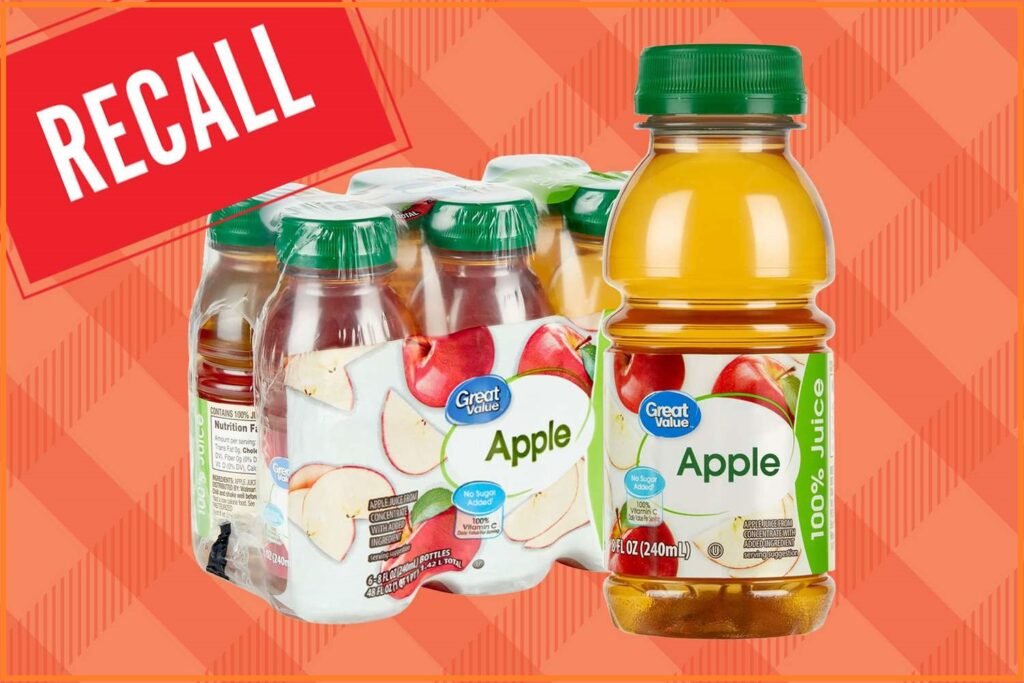- “Understanding the Apple Juice Recall and Its Impact”
- Introduction
- Reasons Behind the Apple Juice Recall
- Health Risks Associated with Recalled Apple Juice
- How to Check If Your Apple Juice Is Affected
- What to Do If You Have Recalled Apple Juice
- Preventive Measures to Avoid Contaminated Apple Juice
- The Role of Regulatory Agencies in Recalls
- 1. Inspections and Testing
- 2. Issuing Recalls
- 3. Setting Safety Standards
- Final Thoughts
- Questions & Answers
“Understanding the Apple Juice Recall and Its Impact”
Introduction
In recent weeks, there has been a major apple juice recall, raising concerns among consumers about the safety of their favorite fruit beverage. The recall has drawn attention to the importance of food safety and the steps manufacturers take to protect consumers. This article delves into the reasons behind the recall, what consumers need to know, and how to ensure you and your family stay safe.
Food recalls are not uncommon, but they can be alarming, especially when they involve something as widely consumed as apple juice. In this article, we’ll explore the circumstances of the recent apple juice recall, examine the risks associated with contaminated products, and provide guidance on how to handle a recall effectively.
Reasons Behind the Apple Juice Recall
The recent apple juice recall was prompted by concerns over contamination. According to the Food and Drug Administration (FDA), the presence of certain harmful substances in batches of apple juice can pose health risks. These substances include bacterial pathogens like E. coli, chemicals such as pesticide residues, and heavy metals like arsenic and lead.
1. Bacterial Contamination
One of the primary reasons for the recall was the discovery of bacterial contamination, particularly E. coli. This bacteria can cause severe food poisoning, especially in vulnerable groups like children and the elderly. Contaminated apple juice can lead to symptoms such as vomiting, diarrhea, and abdominal pain, making it crucial for consumers to avoid drinking affected products.
According to the Centers for Disease Control and Prevention (CDC), E. coli contamination often occurs when apple juice is produced from apples that were not washed thoroughly or came into contact with contaminated water sources during processing.
2. Chemical Residues
Another cause for concern during the apple juice recall was the detection of unsafe levels of pesticide residues. While pesticides are commonly used in agriculture to protect crops, strict limits regulate their presence in food products to ensure consumer safety. When these limits are exceeded, it can result in severe health risks, including long-term consequences for human health.
3. Heavy Metals
In some cases, the apple juice recall was linked to the presence of heavy metals, like arsenic or lead, above the recommended safety levels. These metals can accumulate in the body over time, leading to potential health problems like neurological damage, developmental delays in children, and an increased risk of cancer.
4. Mislabeling and Allergens
Mislabeling, another issue that prompted the recall, can have serious consequences for individuals with food allergies. Some brands involved in the apple juice recall failed to disclose the presence of certain allergens, putting sensitive consumers at risk. The FDA requires accurate labeling of allergens like sulfites, which are sometimes used as preservatives in fruit juices.
Health Risks Associated with Recalled Apple Juice
The risks linked to contaminated or mislabeled apple juice can vary depending on the type of contamination and the severity of exposure. Here are some common health risks associated with recalled apple juice:
- Food Poisoning: Symptoms of food poisoning from bacterial contamination can range from mild stomach discomfort to severe gastrointestinal distress.
- Allergic Reactions: For those with allergies, consuming a mislabeled apple juice product can trigger mild to severe reactions, including itching, hives, or anaphylaxis.
- Long-term Exposure to Chemicals: Prolonged consumption of products with elevated levels of pesticides or heavy metals can lead to chronic health issues, including cancer and cognitive impairments.
How to Check If Your Apple Juice Is Affected
If you have apple juice at home, it’s essential to determine if it’s part of the recall. Here are some steps to check if your product is affected:
1. Look Up Product Information
The FDA and other food safety authorities regularly update their websites with information on recalls. You can search by product name, batch number, and expiration date to see if your apple juice is on the recall list.
Visit the FDA’s official website to find the latest updates on recalled apple juice products and how to identify affected batches.
2. Inspect the Label
Check the label for any information related to the batch number, production date, and expiration date. These details are crucial in identifying if your product falls under the recall.
3. Contact the Manufacturer
If you’re unsure about the safety of your apple juice, contacting the manufacturer’s customer service can provide clarity. Most companies will have hotlines set up for questions related to the recall.
What to Do If You Have Recalled Apple Juice
If you find out that the apple juice you have at home is part of the recall, follow these steps to ensure safety:
1. Do Not Consume the Product
Avoid drinking any apple juice that is under recall. Even if you or your family have already consumed it without noticeable symptoms, it’s best to stop using it immediately.
2. Dispose of the Product Safely
If instructed by the manufacturer, dispose of the product safely. Make sure to seal the bottle or container tightly before discarding it, preventing any potential spread of contamination.
3. Request a Refund or Replacement
Most companies involved in a recall will offer a refund or replacement for affected products. Keep the product’s packaging or receipt as proof of purchase when contacting the retailer or manufacturer.
4. Monitor Your Health
If you or someone in your household consumed recalled apple juice, watch for any symptoms of foodborne illness or allergic reactions. Seek medical attention if any concerning symptoms arise.
Preventive Measures to Avoid Contaminated Apple Juice
While food recalls cannot always be predicted, there are some preventive measures you can take to minimize the risk of consuming contaminated apple juice:
1. Buy from Reputable Brands
Purchase apple juice from well-known and reputable brands that adhere to high-quality standards. Reputable manufacturers often have better quality control measures in place.
2. Opt for Organic Apple Juice
Organic apple juice is less likely to contain harmful pesticide residues because of strict regulations governing organic farming practices. Look for certified organic labels.
3. Store Juice Properly
Proper storage of apple juice is crucial to maintaining its safety. Keep it refrigerated and follow the storage instructions provided on the label. Consume juice within the recommended time frame after opening.
4. Read Labels Carefully
Check the label for any warning signs, such as added preservatives or chemicals. Ensure that all ingredients are clearly listed, especially if you have food allergies.
The Role of Regulatory Agencies in Recalls
Food recalls are closely monitored and regulated by government agencies, including the FDA and the USDA. These agencies enforce strict guidelines to ensure that food products, like apple juice, are safe for consumption. Here’s how they play a part in protecting consumers:
1. Inspections and Testing
Government agencies routinely inspect food processing facilities to ensure compliance with food safety standards. They conduct tests to detect contaminants, chemical residues, and allergens in food products.
2. Issuing Recalls
When a potential health risk is identified, regulatory bodies coordinate with manufacturers to initiate recalls. They publish recall notices that inform the public about affected products, ensuring that consumers are well aware of any potential risks.
For more information on the role of the FDA in food recalls, check out their official page.
3. Setting Safety Standards
Regulatory agencies set safety standards for allowable limits of chemicals, pesticides, and contaminants in food products. These standards are regularly updated based on new scientific evidence.
Final Thoughts
The recent apple juice recall serves as a reminder of the importance of food safety and the role of consumers in safeguarding their health. Staying informed about recalls, reading product labels carefully, and choosing reputable brands can minimize risks. Regulatory agencies play a critical role in maintaining food safety standards, but consumers also need to take proactive steps in response to recalls. By staying vigilant, we can protect ourselves and our families from potential food hazards.
Questions & Answers
Q1: What should I do if I suspect I’ve consumed recalled apple juice?
A1: If you experience symptoms like nausea, vomiting, or abdominal pain after consuming apple juice, seek medical advice. You can also contact the manufacturer for further instructions.
Q2: How can I stay updated on future food recalls?
A2: You can sign up for food recall alerts through the FDA’s website or follow your local health department’s updates to stay informed about any future recalls.
Q3: Is organic apple juice always safer than non-organic?
A3: While organic apple juice may have fewer pesticide residues, it’s still crucial to buy from reputable brands that follow stringent food safety protocols.


